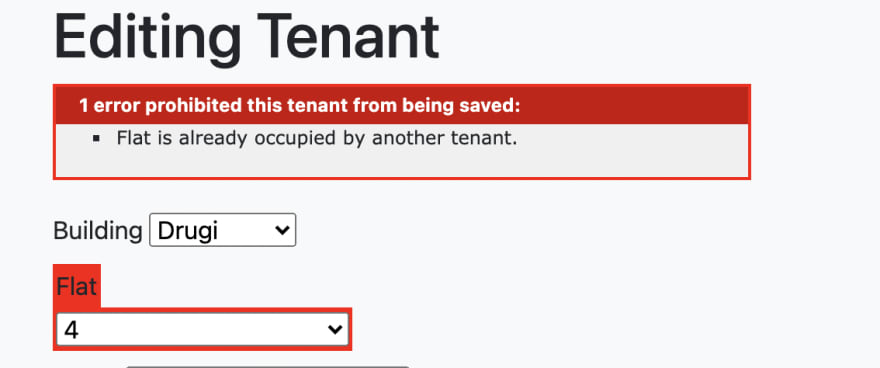I couldn't come up with a better title, but for my app for landlords I faced a problem where I don't want to remove old tenants. I want to store them in a database for future reference. So that leaves me with problem of making sure that only one tenant can have "active" status at any given time.
Now, I tried to find a way of forcing that on a database level, but then I thought about rails validations. I can check that on adding or modifying my tenants. And since my app will never be big enough for multiple users to update the same record in DB concurrently, I decided to implement that directly in the app.
Let's assume our Flat has_many :tenants and Tenant belongs_to :flat
I will take advantage of rails model callback order. And first four go as below:
So now I can use this order to force validation of my record to see if any other tenants are active. If there is another tenant that is active, I won't allow the record to save. Sounds simple to me.
Few things happened above. I use my method determine_active in my validation. I do that because in my force_one_active function, it first checks if the tenant should be active at all, then performs a search to check if there are any additional tenants with the same status, if it happens to find that the flat is occupied, it stops the record from saving on a validation level, thus leaving active = false.
I've also added another function to set flat's taken value if our current tenant happened to be active.
Now, because this method is in before_save callback it will never run unless validation has passed successfully, as per order shown previously.
It's not perfect, but it works for a smaller scale app like mine.




Top comments (0)